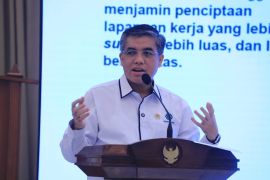"When we encounter a boom in old people (demographic), it is the explosion in baby births that must be restrained," he said.
According to Wardoyo, population aging cannot be prevented, and several regions in Indonesia are currently transitioning to the aging population phase, such as Jakarta, Yogyakarta, Bali, East Java, and North Sulawesi.
The unstoppable boom in the elderly population has posed a serious threat to the nation’s achieving a second demographic bonus, he said.
The country needs more productive people to turn the economic wheels, he explained.
"In 2035, the present old demographic will be unproductive. With that, there will be no second demographic bonus," Wardoyo said.
Therefore, population aging must be panned by all parties because the state of the elderly in Indonesia is different from that in developed countries, he added.
Old people in developed countries already have a high level of education, have earned enough income, and are able to save for their retirement, making them capable of providing for themselves, participating in investment activities, and even funding their children, he said.
On the contrary, most of the Indonesian elderly do not earn an income and often ask for help from their children and grandchildren, he pointed out.
Realizing this urgency, Wardoyo asked every family to plan the birth of each child so that the Human Development Index (HDI) can increase in terms of higher life expectancy, income, and education level.
Planning births through the Family Planning (KB) program can also prevent the increasing number of the unproductive population, unplanned pregnancies, and lead to the birth of healthy babies free of stunting, he remarked.
Related news: RI needs law to control population growth : official
Related news: BKKBN underlines three points to reap demographic bonus
Translator: Hreeloita S, Kenzu T
Editor: Suharto
Copyright © ANTARA 2022












